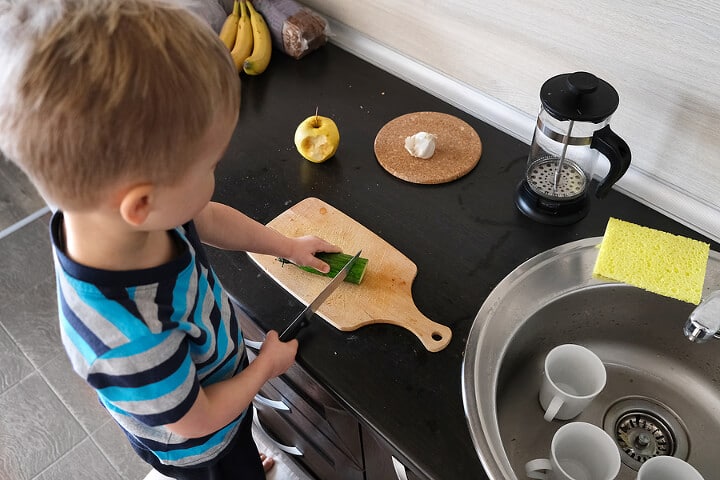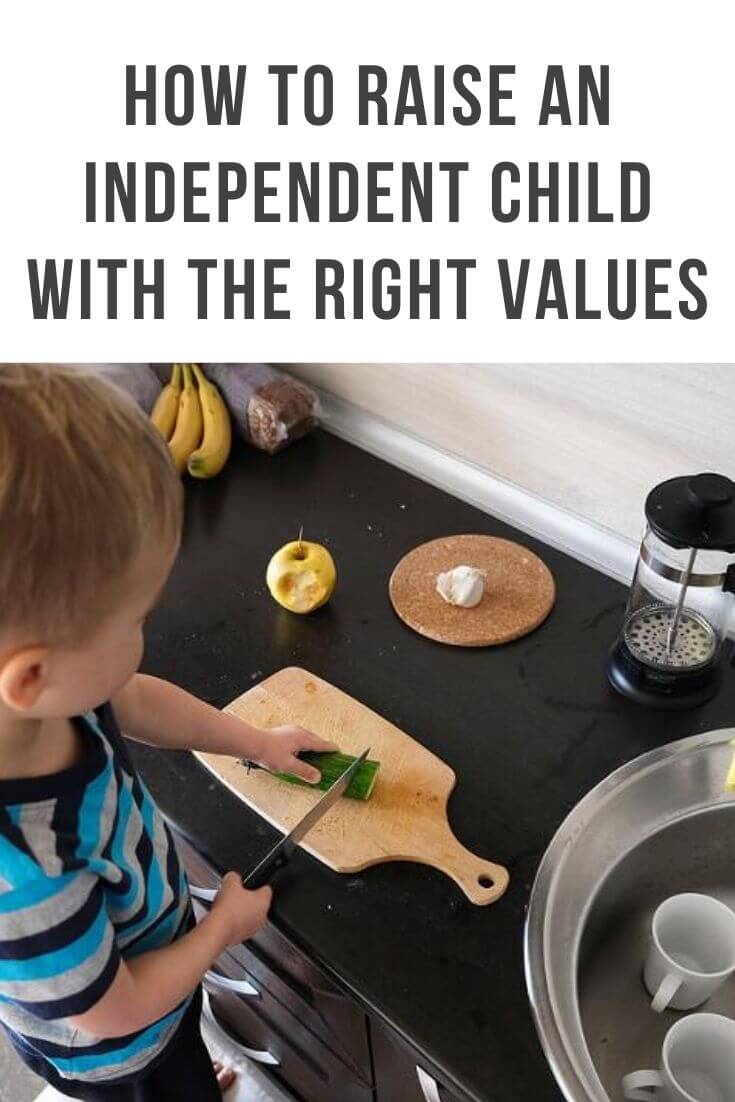
While we might not admit it, moms and dads love to be needed; it’s motherhood and fatherhood job security if nothing else. But the end game of parenting is not to have our children rely on us forever. Rather, the goal is to push them out of the proverbial nest in hopes that they will fly (and stop asking for money). Setting our children up for this type of success starts early; often, independent adults start out as independent children.
So, how to raise an independent child with the right values? The following tips may help:
Perpetuate Self-Reliance:
Humans are social creatures by nature, which means we’re never truly independent. So, instead of focusing on the “I” word, focus on self-reliance and teach your children that they’re capable of doing things for themselves. This helps cultivate confidence, and encourages them to develop emotionally, cognitively, and behaviorally.
Give Them Space:
Botanists growing plants know that their ferns and their orchids (and the like) won’t grow as much if they’re restricted by the size of their pot. Children are no different! When parents take over their child’s activities, doing things for them or overemphasizing instructions, it compromises their ability to learn and explore. And this hinders the child’s sense of pride and accomplishment, and their willingness to discover new things.
In younger children, the above is even more challenging as toddlers trying to establish their independence may be perceived as defiant or bad. But they’re not being disobedient, they’re just being human. Regardless of age, all of us want to do things our way.
Assign Responsibilities:
How we long for the day when we can ask Junior to do our taxes or resod the backyard! Sure, that’s a reach, but that doesn’t mean your kids are too young for other types of responsibilities. Assigning your kids simple chores – like taking out the trash, cleaning their room, or feeding the dog – fosters a sense of accomplishment. Accomplishment begets more accomplishment – once children experience success they try harder to succeed. They also learn the importance of effort – if you want things in life, you must work towards those things.
Let Them Do It Themselves:
Many young children, one or two-year-olds, often assert their independence by conveying their desire to do things themselves. They may want to put on their own shoes or pick their juice cup. Encourage this as often as you can! This may mean lowering coat hooks so they’re within their reach, buying step stools, or outfitting their wardrobe with easier clothes (i.e., swapping out shoelaces for Velcro and buttons for snaps). Don’t focus on your child completing their tasks perfectly; just encourage them to try.
Be Patient:
It’s hard to be a parent without a heaping spoonful of patience, but it’s even more important when raising Mister or Miss Independent. Keep this in mind and don’t intervene in your child’s tasks even if you can complete them faster or more efficiently (and when they accomplish a task, make a big deal out of it!). If you’re on a time crunch, make sure to provide your child with an extra cushion. For instance, if you’re leaving the house in ten minutes, tell your toddler to start putting on their shoes. If you’re in a rush, you’ll take the reins.
Know Your Kid:
Children are as individual as snowflakes or fingerprints and some hang back while others naturally veer towards independence. Kids who are sensitive or timid will likely be more reluctant to try new things than kids doing flips off of bunkbeds with lampshades on their heads. Observe your child to gauge what kind of approach they need. The bold may do well with overt instruction while the more reserved kiddo may need you to model a task before they feel comfortable enough to give it the old nursery school try.
Cede Control:
One of the best parts of being a parent is all the power we have! What we eat, what we do, where we go, when we go to bed – it’s up to us! Yet in order to establish independence, we must cede control to our junior associate. You don’t need to empower your child to make important decisions but give them the chance to make simple choices. Let them pick the type of sandwich they eat, what pajamas they wear, or what song they listen to in the car. They’ll not only feel big and mighty, but they’ll savor their choices more as well. The same piece of bologna tastes delicious when they decide to eat it; when they’re forced, it’s clearly yucky.
Show Them Consequences:
Perhaps the most important lesson in childhood is that we have consequences for our actions. Children who aren’t taught this fail to make the connection between behavior and choice. One effective way to teach this is to let children make their own mistakes and learn from those mistakes (as long as those mistakes don’t compromise health or safety). If your child insists on playing roughly with a new toy and then breaks that toy, they’ll learn to take better care of their things in the future.
Set a Routine:
Routines aren’t only better for parents (morning: coffee, lunch: coffee, dinner: wine); they’re better for children too. Children with structure enjoy a safe environment where they’re better able (and more willing) to try new things. Structure helps keep children from becoming flooded and offers the solid foundation upon which they can soar.
Keep Keeping On:
Not every child is willing to adopt new behaviors or take control of the proverbial reins. But it’s important that you encourage them to keep trying. Let them know you have confidence they can do it. Independence isn’t just a perk of childhood; it’s a necessity. Teaching them to try again also encourages resilience.
It’s tempting to help our children and do things for them, but this only keeps them helpless longer. Raising an independent child, on the other hand, is an excellent way to set them up for success. Show them that they can do things for themselves; this leads to freedom – both theirs and yours.
Related Posts:
16 Simple Tips on How to Raise a Confident Child
How to Raise a Happy Child (Simple, Proven Strategies)
Secrets to Raising Resilient Children
These 8 Traits Are Essential to Raising Successful Children
